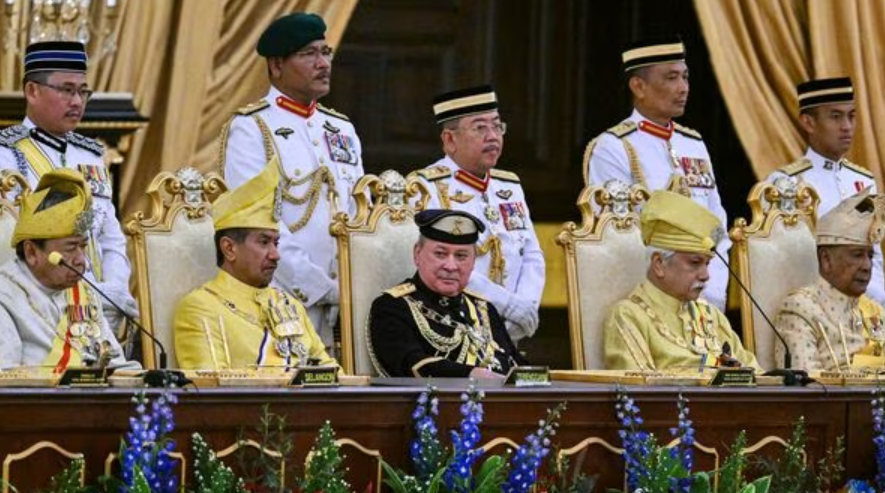Washington threatens Beijing with a refusal to fulfil debt obligations. Such, according to the White House, should be the price paid by the PRC for the spread of coronavirus and the concealment of pandemic information.
In response, according to media reports, China – the second-largest holder of US government debt – plans to throw a substantial amount of treasury bonds onto the market. Economists are confident that this will inflict a crushing blow to the entire US securities market and the dollar.
“Big deal.”
At the end of March, Senators Marsha Blackburn and Lindsay Graham demanded that Beijing be punished “for concealing information about the Wuhan outbreak that triggered a global health crisis.” In their opinion, a portion of the American debt held in reserves of the Chinese Central Bank should be written off. In fact, this means default on securities of the US Treasury.
“This is the third pandemic from China. They come from these dirty markets, where they have mice and monkeys with the virus, which is then transported through food,” Graham told Fox News. And therefore, the senator emphasized, “the whole world should bill for the pandemic” and make Beijing “fork out big.”
A bill was submitted to Congress on the need for an international investigation into Beijing’s actions during the outbreak of coronavirus and the creation of a “compensation mechanism.” Top government officials joined the campaign, and Donald Trump supported the idea.
“We have not yet determined the final price, but it will be significant,” China “made a terrible mistake” and tried to hide it, the president said.
However, as the Chinese media warned, Beijing will not be indebted. The second-largest foreign lender in the United States is ready to begin selling its bonds.
China prepares to sell off US public debt
According to Hong Kong’s oldest English-language newspaper, the South China Morning Post, perhaps this will happen in the coming months, depending on how the situation with compensation claims develops.
According to analysts, the result for the United States will be extremely unpleasant: China will strike the government bond market exactly at the moment when Washington sharply increased its emissions in order to finance programs to combat the pandemic and its economic consequences.
“Debt cancellation is such a crazy idea that whoever offers it, whoever he is, should seriously think about his professional suitability,” said Cliff Tan, head of MUFG’s East Asia Global Market Analysis Department.
Therefore, experts are inclined to consider this a political ploy in the framework of the election campaign for the re-election of Trump. Indeed, such a step “will completely destroy the source of financing the US budget deficit.”
Inverse effect
Economists have warned: any attempt by Washington not to fulfil debt obligations to China will give a boomerang effect. Actual default will dramatically undermine investor confidence in the ability of the US government to pay bills – and, as a result, in dollar assets.
As a result, the yield on treasuries will increase sharply, which will increase the cost of financing for both the US government and American companies and consumers. Moreover, this will happen at the time of the extreme weakness of the American economy, which has already promised the largest quarterly drop in history – up to 50% of GDP.
In the PRC, they have repeatedly stated that they consider the American public debt as risky and reduce dollar reserves in favour of the Japanese yen and the South Korean won. Theoretically, Beijing can undertake a massive scale. And this will be a disaster: the value of the treasuries will collapse, panic will occur in the stock market, the dollar will collapse.
Another thing is that Beijing is unlikely to dare to do this: Chinese exports will rise in price due to the weakening of the US currency. In addition, the dumping of US treasury bonds will seriously limit the ability to manage the renminbi.
“China is capable of provoking the collapse of the dollar and financial markets by flooding them with American treasury bonds. Treasuries will depreciate and their profitability will increase sharply. A global financial catastrophe will also hit China,” says Iris Peng, chief economist at China.
And yet, most likely, Beijing will prefer a less stringent option: it simply stops buying new issues of the US public debt. And it will gradually reduce these assets as the repayment of the treasuries.
We are getting rid of these papers. As a result, by June 2019, the leadership among foreign holders of the American public debt passed to Japan: Tokyo has treasuries of 1.12 trillion.
As the latest report by the US Treasury showed, by February, the portfolio of US government bonds in China had fallen to 1.09 trillion – from 1.32 trillion in November 2013.









